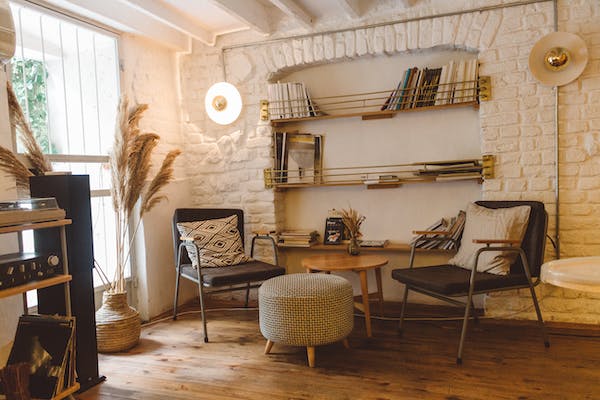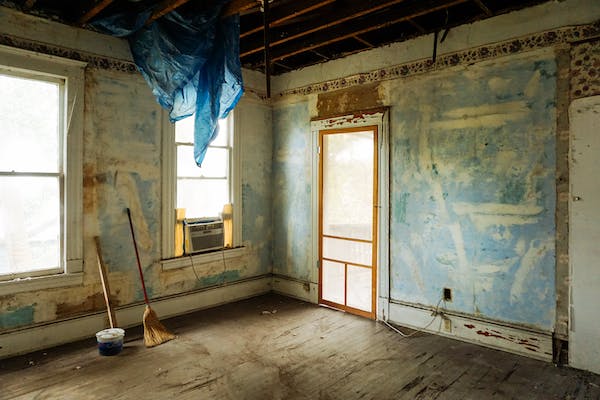Navigating the Competitive Rental Market: Top Strategies for Finding Your Ideal Apartment
Are you tired of endlessly scrolling through rental listings, only to find apartments that don't meet your needs or budget? With the competitive rental market on the rise, finding your ideal apartment can be a daunting task. But fear not! In this blog post, we'll explore top strategies for navigating the rental market and securing your perfect place to call home. From setting realistic expectations to leveraging technology tools, we've got you covered. So grab a cup of coffee and let's dive in!
Introduction
It's no secret that the rental market is competitive. With so many people searching for apartments, it can be hard to find one that meets all of your needs. But don't despair! There are some strategies you can use to help you find your ideal apartment.
Here are some tips for navigating the competitive rental market:
1. Start your search early. The sooner you start looking for an apartment, the better your chances of finding one that meets your needs.
2. Be flexible with your criteria. You may have a specific idea of what you want in an apartment, but be open to considering other options. You may be surprised at what you find!
3. Use all of your resources. Utilize online search tools, talk to friends and family, and work with a real estate agent to help you find an apartment.
4. Be prepared to move quickly. Once you find an apartment you like, be ready to move fast! If you delay, someone else may snatch up the unit before you have a chance to act.
With these tips in mind, you'll be well on your way to finding your perfect apartment in no time!
Understand the Market
In order to find the ideal apartment, it is important to understand the competitive rental market. There are a number of factors that can impact the rental market, including the time of year, the location of the rental property, and the overall demand for rental units.
seasonal fluctuations in the rental market. For example, rents tend to be highest in the summer months when demand is highest. Conversely, rents may be lower in the winter months when demand is lower.
location can also impact the rental market. Rental properties in urban areas tend to be more expensive than those in rural areas. Additionally, rentals located near popular attractions or amenities may also command higher prices.
Overall demand for rental units can impact the market as well. When there are more renters searching for apartments than there are available units, prices will typically rise. However, when there is an abundance of available rentals on the market, prices may drop in order to attract tenants.
Prepare Financially
If you're looking for an apartment, you'll need to be prepared financially. Here are some tips:
- Know your credit score and history. This will give you an idea of what kind of interest rate you'll qualify for when you're taking out a lease.
- Have a budget in mind. Once you know your credit score, research average rental prices in the area where you want to live. This will help you set a realistic budget for your apartment search.
- Save up for a security deposit and first month's rent. Most landlords will require both of these upfront, so it's important to have the cash saved up before beginning your search.
- Consider getting renters insurance. This isn't required by most landlords, but it can give you peace of mind in case something happens to your belongings while you're living in the apartment.
Consider Your Priorities
When you're looking for a new apartment, it's important to consider your priorities. What's most important to you? Location? Size? Amenities? Once you've decided what's most important to you, you can start narrow your search.
If location is your top priority, start by looking in the neighborhood or area you want to live in. Then, narrow your search by size and amenities. For example, if you want to be in downtown Boston, you might start by searching for 1-bedroom apartments that are within walking distance of public transportation.
If size is your top priority, start by searching for apartments that meet your square footage needs. Then, narrow your search by location and amenities. For example, if you need a 2-bedroom apartment, you might start by searching for apartments that are at least 1,000 square feet. If you're flexible on location, you can expand your search to include different neighborhoods or areas.
If amenities are your top priority, start by looking for apartments that have the amenities you want. For example, if you're looking for an apartment with a gym and pool, start by searching for apartments that have those amenities. Then, narrow your search by location and size.
Begin Your Search
Assuming you've already decided on which city you'd like to move to, it's time to start your search for the perfect apartment. Here are some tips to help you navigate the competitive rental market and find your ideal apartment:
1. Start early and be prepared to move quickly
The earlier you start your search, the better. This gives you more time to look at different options and compare prices. Be prepared to move quickly once you find a place you like since good apartments don't stay on the market for long.
2. Use a trusted apartment search website
There are many apartment search websites out there, but not all of them are created equal. Do some research to find a website that has good reviews and is known for providing accurate listings. This will save you a lot of time and frustration down the road.
3. Know what you're looking for (and what you're willing to compromise on)
It's important to have a clear idea of what kind of apartment you're looking for before starting your search. Make a list of must-haves and nice-to-haves so you can easily narrow down your options. Be realistic about what you're willing to compromise on, as it's unlikely that you'll find an apartment that ticks all the boxes.
4. Set a budget and stick to it
Before beginning your search, it's crucial to set a budget and make sure you're comfortable with the monthly
Narrow Down Options
The rental market can be a competitive one, especially in larger cities. If you're on the hunt for your ideal apartment, it's important to narrow down your options so that you can focus your search. Here are a few top strategies for narrowing down your options:
1. Determine Your Budget: The first step is to determine how much you can realistically afford to spend on rent each month. Once you have a budget in mind, you can start to narrow down your options by only considering units that fall within your budget.
2. Consider Your Location: Another important factor to consider is your desired location. Do you want to be in the heart of the city or would you prefer a quieter suburban neighborhood? Narrowing down your options by location will help you find an apartment that's just right for you.
3. Prioritize Your Must-Haves: What are your must-haves in an apartment? Make a list of things that are non-negotiable for you, such as a certain number of bedrooms or having laundry facilities in the unit. This will help you further narrow down your options so that you only consider apartments that meet all of your needs and wants.
Tour Apartments
If you're like most apartment hunters, you probably have a list of must-haves for your ideal unit. But with so many options on the market, how do you know which one is right for you?
Here are some top strategies for finding your ideal apartment:
1. Know your budget. Before you start your search, it's important to know how much you can afford to spend on rent. This will help you narrow down your options and avoid wasting time looking at units that are out of your price range.
2. Do your research. Once you've established your budget, it's time to start doing some research. Look online and read reviews to get an idea of what different apartments in your price range are like. You can also ask friends and family for recommendations.
3. Make a list of must-haves. Once you've done your research, it's time to make a list of must-haves for your ideal apartment. This might include things like a washer and dryer in the unit, off-street parking, or a certain number of bedrooms and bathrooms.
4. Tour apartments. Once you've narrowed down your options, it's time to start touring apartments. This is where you'll be able to see firsthand whether an apartment meets your needs and if you feel comfortable there. Be sure to take note of things like the condition of the unit, the noise level, and the neighborhood during your tour.
Negotiate & Sign the Lease
In order to sign a lease, you will need to negotiate with the landlord. This can be a tricky process, especially if you are new to renting an apartment. Here are some tips for negotiating with your landlord:
1. Be prepared to compromise. You may not get everything that you want, so be willing to compromise on some things.
2. Be reasonable. Don't try to low-ball the rent or ask for too many concessions. The landlord is likely to counter-offer, so start high and be prepared to negotiate down.
3. Don't be afraid to ask for what you want. If there's something that you really want, such as a parking space or a better view, don't be afraid to ask for it.
4. Be flexible on move-in date. The landlord may have other tenants who are interested in the same unit, so be flexible on your move-in date in order to increase your chances of getting the unit that you want.
5. Get everything in writing. Once you've reached an agreement with the landlord, make sure that all of the terms and conditions are put into writing and signed by both parties before you move in.
Conclusion
Finding an apartment can be a daunting task, but with the right strategies in place, it doesn't have to be. From researching the area and budgeting properly to finding reputable landlords and using online tools, there are plenty of ways you can make sure that your next move is one you'll love. Armed with these tips, you should have no trouble navigating the competitive rental market and finding your ideal apartment. Good luck!






